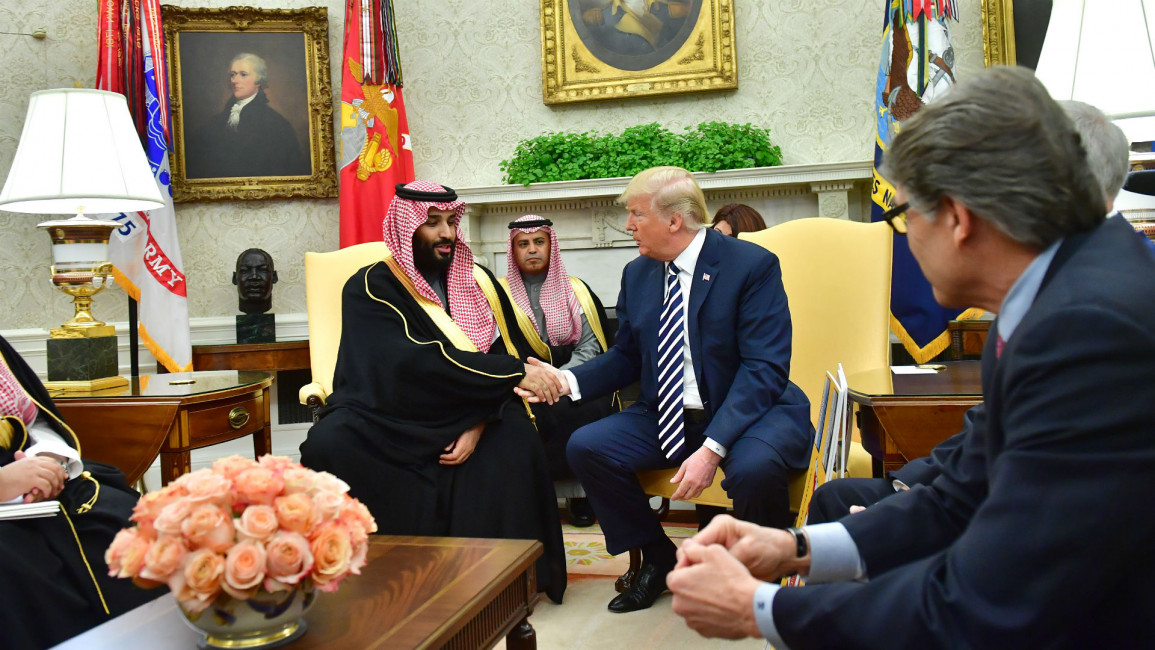Saudi crown prince lashes out at arch-rival Iran over tanker attacks
Saudi Crown Prince Mohammed bin Salman accused arch-rival Iran of attacks on oil tankers in a vital Gulf shipping channel, adding he "won't hesitate" to tackle any threats to the kingdom, according to an interview published on Sunday.
Two tankers were struck by explosions on Thursday in the Gulf of Oman, the second attack in a month in the strategic shipping lane amid a tense US-Iran standoff, sparking fears of a regional conflagration and sending oil prices soaring.
"We do not want a war in the region... But we won't hesitate to deal with any threat to our people, our sovereignty, our territorial integrity and our vital interests," Prince Mohammed told pan-Arab daily Asharq al-Awsat, in his first public comments since the attacks.
"The Iranian regime did not respect the presence of the Japanese prime minister as a guest in Tehran and responded to his (diplomatic) efforts by attacking two tankers, one of which was Japanese."
The prince also accused "Iran and its proxies" over May 12 attacks on four tankers anchored in the Gulf of Oman off the United Arab Emirates port of Fujairah.
Thursday's attack on two tankers - the Japanese-owned Kokuka Courageous that was carrying highly flammable methanol when it was rocked by explosions and the Norwegian-operated Front Altair - came around the time Japanese Prime Minister Shinzo Abe was meeting with Iranian leaders in Tehran.
US President Donald Trump has said the twin attacks had Iran "written all over it", rejecting Tehran's vehement denial.
Saudi Arabia, a close US ally, is a bitter regional rival of Iran.
The US military on Friday released grainy footage it said showed an Iranian patrol boat removing an "unexploded limpet mine" from one of the tankers.
The UAE's Foreign Minister Sheikh Abdullah bin Zayed Al Nahyan on Saturday called on world powers "to secure international navigation and access to energy", a plea echoed by regional ally Saudi Arabia after the incident sent crude prices soaring.
The UAE's Sheikh Abdullah, whose country is bitterly opposed to Iranian influence in the region, called for a deescalation of tensions.
"We remain hopeful in attaining a broader framework for cooperation with Iran," he said at a summit in Bulgaria.
Meanwhile, Saudi Arabia's Energy Minister Khalid al-Falih called for a "swift and decisive" response to threats against energy supplies after Thursday's "terrorist acts".
'Allegations against Iran'
Iranian Foreign Minister Mohammad Javad Zarif tweeted that the US had "immediately jumped to make allegations against Iran without a shred of factual or circumstantial evidence."
The United States has also accused Iran over May 12 sabotage attacks on four tankers anchored in the Gulf of Oman off Fujairah.
On Saturday, Iran's foreign ministry summoned the British ambassador after his government also accused Tehran of being behind the attacks.
”Rob Macaire, Britain's ambassador to Tehran, was summoned to the foreign affairs ministry... following the false remarks made by the British foreign affairs minister," the foreign ministry said in a statement carried by the official IRNA news agency.
British Foreign Secretary Jeremy Hunt a day earlier said London had concluded Iran was "almost certainly"responsible for Thursday's tanker attacks, echoing Trump’s comments.
Meanwhile, UN Secretary-General Antonio Guterres called for an independent investigation amid escalating tensions.
"It's very important to know the truth (and) that responsibilities are clarified," he told reporters at UN headquarters in New York.
"Obviously that can only be done if there is an independent entity that verifies those facts."
The oil tankers hit Thursday morning were 10 nautical miles apart and heading for Asia when they were struck by explosions after passing through the Strait of Hormuz, some 25 nautical miles off Iran's southern coast.
The Front Altair was carrying naphtha, a refined petroleum product, when it was hit by three explosions, according to Norwegian officials.
Follow us on Twitter: @The_NewArab



